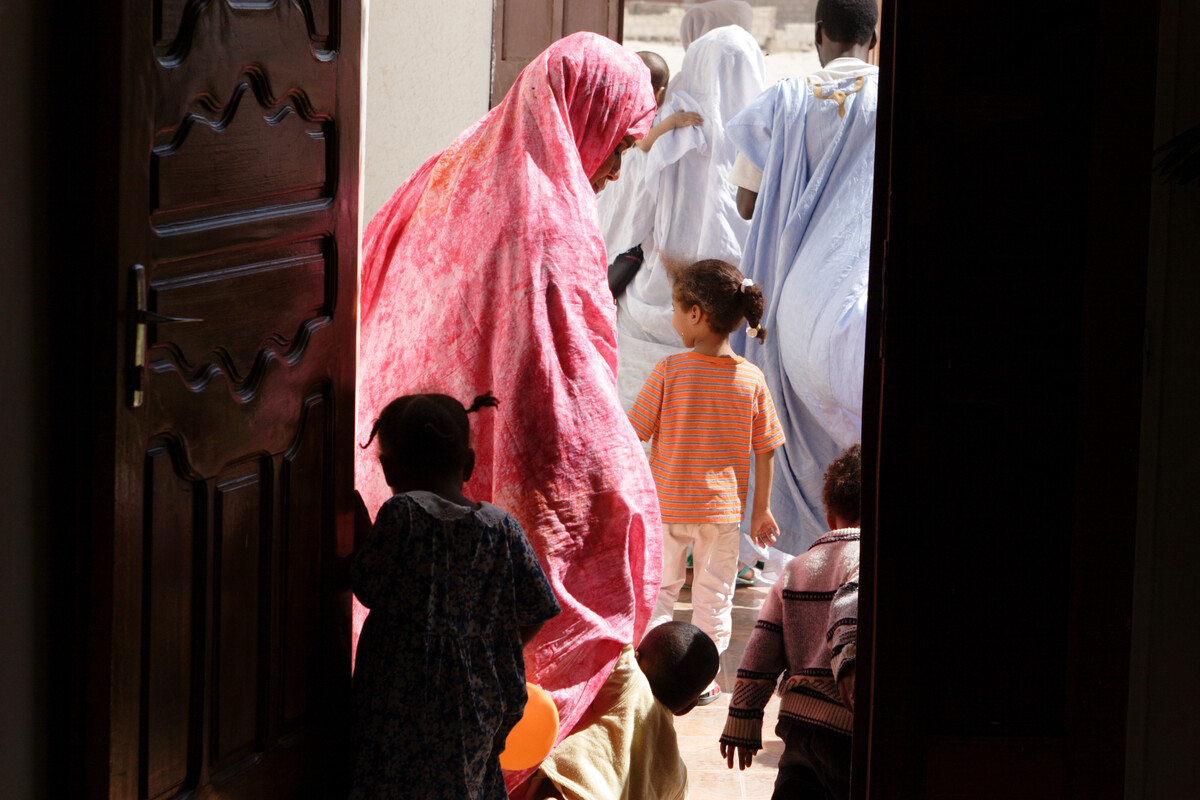“As advocates against female genital mutilation, we perceive it as a violation of childhood and a disregard for human rights.”
Fadoua Bakhadda, Arab World Regional Director. Tweet
Female genital mutilation affects 200 million women and girls worldwide. It is concentrated in around 30 countries in sub-Saharan Africa, the Middle East and Asia. Some countries have prevalence rates above 90, such as Somaliland, Somalia, Guinea and Sierra Leone. Female genital mutilations are gender-based violence and violation of human rights.
“Female genital mutilation is an umbrella term that includes all procedures that involve partial or total removal of the external female genitalia, or other injury to the female genital organs, for non‑medical reasons. Female genital mutilation violates a number of well‑established human rights principles, norms and standards, including the principles of equality and non‑discrimination on the basis of sex, gender, the right to bodily integrity, the right to life (because the procedure can result in death), and the right to the highest attainable standard of physical and mental health.”
IMAP Statement on the elimination of female genital mutilation
What is female genital mutilation?
- The World Health Organization classifies female genital mutilation into four types.
- Type I: Partial or total removal of the clitoris and/ or the prepuce (clitoridectomy).
- Type II: Partial or total removal of the clitoris and the labia minora, with or without excision of the labia majora (excision).
- Type III: Narrowing of the vaginal orifice by creating a covering seal through the cutting and apposition of the labia minora and/or labia majora, with or without excision of the clitoris (infibulation).
- Type IV: Unclassified – all other harmful procedures to the female genitalia for non‑medical purposes, for example pricking, piercing, incision, cauterization and scraping
For the past decades, survivors’ testimonies show that the practice is increasingly performed by health providers such as pediatricians. “This medicalization gives the erroneous impression that female genital mutilation is beneficial to the health of women and girls. But female genital mutilation – wherever it takes place, and whether it is performed by traditional or medical providers – is harmful and has no benefits whatsoever.” – IMAP Statement on the elimination of female genital mutilation.
“In Yemen, girls are cut at one week old. In Sudan, it is done between the ages of 7 to 9. The age depends on the country. It usually happens before they turn 15.”
Dr. Rania Abdalla Abu Elhassan. Tweet
What does it mean?
The meaning of female genital mutilation varies from country to country. It may be about denying women access to sexual pleasure, virginity, a religious obligation or a rite of passage. There is a belief that performing female genital mutilation will reduce a woman’s libido and out of fear of painful sex, prevents girls and women from having sex before marriage (‘protecting’ them from ‘promiscuity’) and keeps them virgins until marriage. The overall aim is to control women’s and girls’ bodies by controlling their sexual abilities.


IPPF Center of Excellence for the Elimination of Female Genital Mutilation
The IPPF Arab World Region leads the Acceleration Programme on Female Genital Mutilation. The Member Association of Mauritania hosts the IPPF Centre of Excellence for the Elimination of Female Genital Mutilation in Nouakchott since October 2021. AWRO is committed to the globalisation of this project to end female genital mutilation. The IPPF Centre of Excellence aims to strengthen the capacity of MAs and health providers by sharing experiences and best practices in eliminating this practice, learning from successes and ways to address challenges. The Center also supports survivors to empower them and improve their future by opening up new horizons. The Center works with female practitioners of FGM by developing social and economic projects to encourage them to abandon the practice. Finally, based on evidence, research and evaluation, the Centre of Excellence for the Elimination of Female Genital Mutilation leads advocacy initiatives.
With support from the IPPF Arab World Region, the Mauritanian Association for the Promotion of the Family is setting an example by running effective and successful programmes to eliminate female genital mutilation. At the beginning of the 21st century, the prevalence of female genital mutilation in Mauritania was around 70% in rural areas and as high as 92% in some nomadic communities. In 2005, the government passed a law criminalising female genital mutilation. Campaigns were carried out on the negative effects of the practice on girls’ sexual and psychological health. Thanks to the efforts of the Mauritanian Association, the prevalence of female genital mutilation in Mauritania has fallen significantly, to around 10% in some areas. In July 2022, the IPPF Centre of Excellence and the Mauritanian Association for the Promotion of the Family organized the interregional workshop for religious leaders on female genital mutilation in Nouakchott: “Between the harm of the practice and the need to eradicate the phenomenon”. As a result of this meeting, Muslim and Christian religious leaders from nine countries in the Arab and African regions issued a declaration calling for the prohibition of FGM as a harmful practice.
On the International Day of Zero Tolerance to Female Genital Mutilation, the Arab World Region and its partner CAWTAR launch an important e-platform dedicated to boys and men to raise their awareness on female genital mutilation :
https://www.men-end-fgm.org/
Coming soon…
The IPPF Programme to End Female Genital Mutilation will launch its new Framework to Accelerate the Elimination of Female Genital Mutilation during the International Workshop on Quality of Care for Survivors of Female Genital Mutilation organised by the Mauritanian Association for for the Promotion of the Family (AMPF) and the Centre of Excellence for the Elimination of Female Genital Mutilation in Naukchout from 2 to 4 March.







